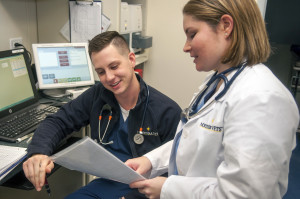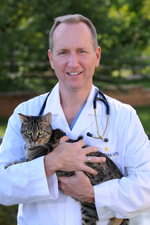-
Recent Posts
Archives
- October 2022
- August 2022
- May 2022
- March 2022
- January 2022
- December 2021
- September 2021
- July 2021
- June 2021
- May 2021
- April 2021
- February 2021
- January 2021
- November 2020
- October 2020
- September 2020
- June 2020
- April 2020
- March 2020
- February 2020
- January 2020
- December 2019
- November 2019
- October 2019
- September 2019
- June 2019
- March 2019
- February 2019
- January 2019
- December 2018
- November 2018
- October 2018
- August 2018
- July 2018
- June 2018
- May 2018
- April 2018
- March 2018
- February 2018
- January 2018
- December 2017
- November 2017
- October 2017
- September 2017
- August 2017
- July 2017
- June 2017
- May 2017
- April 2017
- March 2017
- February 2017
- January 2017
- December 2016
- November 2016
- August 2016
- July 2016
- June 2016
- May 2016
- April 2016
- March 2016
- February 2016
- January 2016
- December 2015
- November 2015
- October 2015
- September 2015
- August 2015
- July 2015
- June 2015
- May 2015
- April 2015
- March 2015
- December 2014
- June 2014
- May 2014
- April 2014
- November 2013
- September 2013
- August 2013
- July 2013
- June 2013
- May 2013
- March 2013
- January 2013
- November 2012
- October 2012
- July 2012
- December 2011
- November 2011
- October 2011
- September 2011
- August 2011
- July 2011
- June 2011
- May 2011
- April 2011
- March 2011
- February 2011
- January 2011
- December 2010
- November 2010
Categories
Does My Pet Really Need Blood Tests Before Surgery
The short answer is “yes.”
The minimum standard includes a Complete Blood Count (CBC) and Blood Chemistry Profile, however, other tests may be needed for specific situations. These might include X-rays of the chest, ultrasound of the abdomen, ultrasound of the heart, or urine checks.
 There are several reasons why bloodwork should be rechecked prior to any anesthesia.
There are several reasons why bloodwork should be rechecked prior to any anesthesia.
- The complete blood count provides information regarding the red blood cell count, platelet count and white blood cell count.
- If your pet is anemic, a blood transfusion may be necessary.
- If the platelet count is low, your pet could have serious risks of bleeding during and after surgery (which can be fatal if unchecked).
- The blood chemistry profile provides information regarding your pet’s overall body function. This enables us to choose the best anesthetic medications to use for your pet, making his or her anesthesia as safe as possible.
- Some medications can cause severe reactions if the liver is not at its full capacity.
- Your pet may require special fluid needs if the kidney values are elevated.
- Certain fluid types may be necessary if electrolyte disturbances are present.
- There are other metabolic problems that can be identified on the chemistry that would require a change in the anesthetic planning.
-
Pre-anesthesia screening should be done as close to the time of surgery as possible. If your pet is undergoing an elective procedure, results up to 1 month old are acceptible. If your pet is undergoing emergency surgery, screening tests will need to be done immediately prior to anesthesia.
Our goal is to make your pet’s anesthesia smooth, painless, and as low risk as possible. There is always some risk to anesthesia, no matter how prepared you are; performing pre-anesthesia screening helps us to make anesthesia as safe as possible and helps us to tailor the anesthesia protocol to your pet’s specific needs.
 Daniel Stobie, DVM, MS, DACVS – Chief of Staff
Daniel Stobie, DVM, MS, DACVS – Chief of Staff
A New Jersey native, Dr. Stobie completed his undergraduate work at Cook College/Rutgers University and is a 1990 cum laude graduate of the University of Missouri-College of Veterinary Medicine. He completed an internship in small-animal medicine and surgery at the Angell Memorial Animal Hospital in Boston, then went on to complete a three-year surgical residency at the University of Minnesota and earn a Master’s Degree in Veterinary Surgery, Radiology, and Anesthesia in 1994. Dr. Stobie became a Diplomate of the American College of Veterinary Surgeons in 1995. In 2007, he completed the mini-MBA certificate program at the Rutgers School of Business.
To read more about Dr. Stobie, see his full bio at northstarvets.com.
The information presented on this web site is not intended to take the place of your family veterinarian’s advice and is not intended to diagnose, treat, cure or prevent any disease. Discuss this information with your own veterinarian to determine what is right for your pet. All information is intended for your general knowledge only and is not a substitute for medical advice or treatment for specific medical conditions. We can not and do not give you medical advice via this blog. The information contained in this online site and emails is presented in summary form only and intended to provide broad understanding and knowledge. The information should not be considered complete and should not be used in place of a visit, call, consultation or advice of your veterinarian. We do not recommend the self-management of your pet’s health problems.
This entry was posted in Pets, Veterinary Medicine and tagged anesthesia, blood, CBC, Dr. Daniel Stobie, NorthStar VETS, surgery. Bookmark the permalink.





Leave a Reply